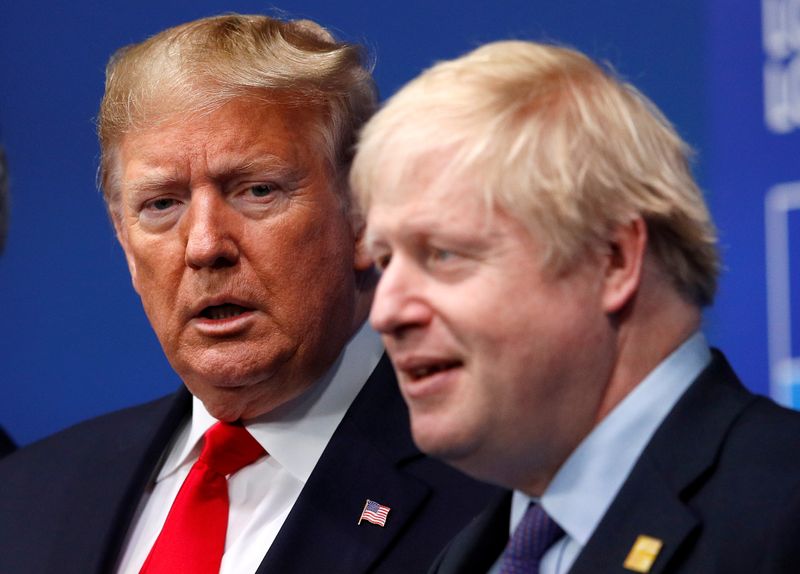LONDON (Reuters) - U.S. President Donald Trump was "apoplectic" with Boris Johnson during a phone call to discuss the British prime minister's decision to allow Chinese firm Huawei a role in Britain's 5G mobile phone network, the Financial Times reported on Thursday.
Citing unnamed officials in London and Washington, the FT said the president was livid during the exchange last week after Johnson's government said Huawei could have a limited role in building Britain's 5G mobile network, despite warnings from the Trump administration.
The paper said one individual who was briefed on the contents of the call on Jan. 28 said Trump was “apoplectic”. It cited another who said the call was "very difficult" and Trump's tone had taken aback British officials.
When asked about the FT report, Johnson's office said they had nothing to add to their statement released soon after the leaders' call to discuss the Huawei decision.
"The prime minister underlined the importance of like-minded countries working together to diversify the market and break the dominance of a small number of companies," that statement said. There was no immediate comment from the White House.
Washington argues Huawei is a security risk because it is an extension of the Chinese state and it helps Chinese intelligence to steal secrets - an accusation dismissed by the company.
The United States has applied strong pressure on countries to exclude the company, the world's largest maker of telecoms equipment, from mobile networks. Britain said excluding Huawei altogether would have delayed 5G and cost consumers more.
Trump has made no public comment about Britain's Huawei decision but U.S. Secretary of State Mike Pompeo played down any rift when he visited London last week.
Although Washington has long suggested it could limit intelligence sharing with countries that failed to exclude Huawei, Pompeo said the "Five Eyes" relationship was strong and would remain in place.
The United States and Britain share intelligence through the "Five Eyes" group which also includes Australia, Canada and New Zealand.

Johnson has also said the decision would not affect U.S.-UK relations and Pompeo spoke optimistically about the prospects of a post-Brexit trade deal between the two countries.